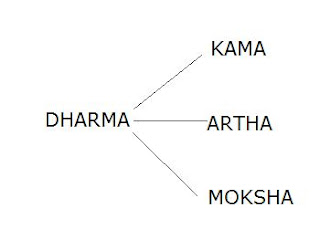Interestingly, I learned from the book that Socrates, the great philosopher, never wrote a book; it was his student Plato who documented his teachings. Similarly, Adler conveyed his ideas through dialogue and debates with intellectuals. Kishimi and Koga adopted this style, creating a natural and relatable conversation between the philosopher and the young man. This format made the book a quick read for me, finishing it in just a week—remarkably fast for non-fiction.
Central Themes and Insights
The central theme of the book is that we can live happy and fulfilled lives without being burdened by the past or future. It's not your usual feel-good self-help book; it addresses fundamental aspects of life, often with hard-hitting truths. The book is divided into five sections, each representing an evening when the young man meets the philosopher, posing questions that are answered thoughtfully.
Here are some noteworthy insights from the book:
Unhappiness is a Choice:
- Adler argues that unhappiness is something we choose for ourselves. This idea was initially shocking to me. The book rejects the concept of living in trauma, suggesting that people use past traumas to justify their current state, as it serves their 'purpose'. We are not determined by our experiences; instead, the meaning we assign to them is what shapes our lives.
Rejection of Cause and Effect:
- The book discards the cause-and-effect concept (etiology) and embraces teleology (purpose-driven). Believing our past controls us is what Adler calls a "life-lie." As long as we adhere to etiology, we will remain stagnant.
Fabricated Emotions:
- Emotions, such as anger, are fabricated to fulfill specific goals, like shouting. Our emotions are tools to justify our actions. We have the power to control our emotions but often use them as excuses.
Interpersonal Relationship Problems:
- All problems are rooted in interpersonal relationships. The concept of "separation of tasks" clarifies how we should manage our relations. Much anxiety stems from intruding into others' tasks. By focusing on our tasks and letting others handle theirs, we can reduce conflicts and stress. We should discard the need for recognition from others, accept ourselves as we are, and accept others as they are, achieving true freedom.
Living in the Moment:
- Life is not a straight line but a series of moments (dots). We live only in the current moment, and our lives are shaped by the decisions we make at each dot. We often think freedom lies in the future, but it actually exists in the present.
Everyone Can Change:
- Regardless of our past, everyone can change. The biggest obstacle to change is ourselves.
Community and Belonging:
- Living a larger life involves contributing to the community. A true sense of worth comes from feeling beneficial to others. Loneliness stems from feeling excluded, even when surrounded by people.
Vertical vs. Horizontal Relationships:
- The book discusses vertical (hierarchical) and horizontal (equal) relationships. Adler suggests we should not praise or rebuke but rather appreciate contributions and engage in straightforward conversations, fostering horizontal relationships.
Freedom to Choose Meaning:
- We are free to choose the meaning of our experiences. No experience is inherently good or bad; it’s our interpretation that defines them.
Perception Shapes Reality:
- The world is inherently simple and consistent, but our thoughts and perceptions define our reality.
The book is rich with anecdotal examples, making complex concepts easily understandable. "The Courage to Be Disliked" is definitely worth reading multiple times for its profound insights.





























